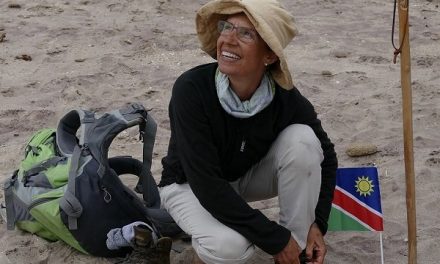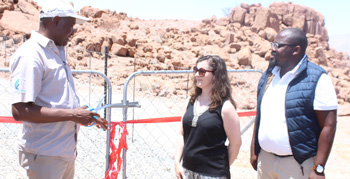
Natural resources key to developmental goals
United Nations Resident Coordinator and UNDP representative in Namibia, Ambassador Musinga Bandora, held a talk this week at the University of Namibia on the new Millennium Development Goals (MDGs) with the current ones only five hundred days away from expiry. Evaluations of the current MDGs he noted were driven more by donor funding and not by national resources. “At times, slow or conditional flow of aid constrained progress.” Bandora said. The UN representative said that future goals will require crony capitalism and systematic corruption to be done away with. He added that the state should create an environment for business to prosper by employing social safety nets in creating employment through programmes that make a difference in terms of investment. In his speech Bandora noted that the results in Namibia have all been mixed but overall quite encouraging and that the country is on course to meet most of the MDGs targets-even if partially. It was observed by Bandora that most of the MDG progress was made in countries such as Namibia, where national resources played a key role. He also noted that unemployment among the youth is a ticking time bomb and will undermine the agenda unless addressed through tackling inequality, poverty and exclusion with poverty eradication as a main objective.
“Inequality in its various forms is expanding and deepening everywhere in Africa and Namibia is no exception. Income inequality undermines long-term growth; it foments political instability, and compromises social cohesion,” he said He noted that MDGs were adopted by governments without consultation with the people and that in the goals mainly remained marginal and not integrated into national development plans. Evaluations of goals have pointed out several shortcomings and lessons which Bandora pointed as an inadequate analysis behind some of the chosen goals in the first global development agenda. “MDGs lacked precedent and therefore, their implementation suffered from experimentation,” he added. Namibia is on target to achieve poverty reduction, universal primary education, gender equality, empowering women, HIV/AIDS, TB, malaria, Environmental sustainability as well as the global partnership for development targets, despite concerns of growing income inequality is undermining efforts in reducing poverty. Like the former MDGs the new goals will run from 2015 to 2030.The new goals hope to strengthen the means of implementation and revitalise global partnership for sustainable development. The goals will include enablers and cross-cutting issues of Finance, Technology, Capacity building and Trade as well as Systemic issues of Policy and Institutional coherence, Partnerships, Data, monitoring and accountability for results. As well as promote sustained, inclusive and sustainable economic growth, full and productive employment and decent work for all and build resilient infrastructure, promote inclusive and sustainable industrialization and foster innovation.












































